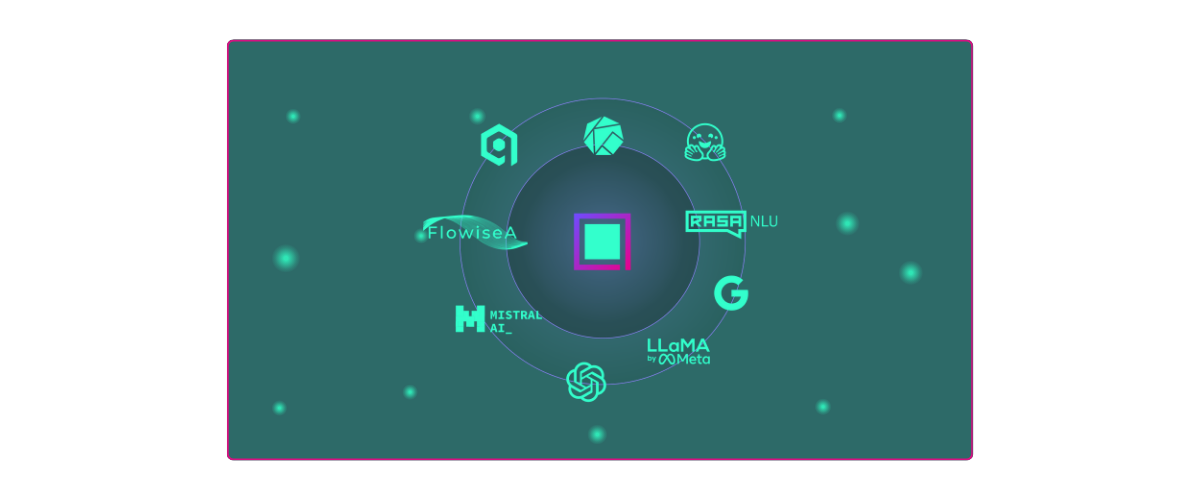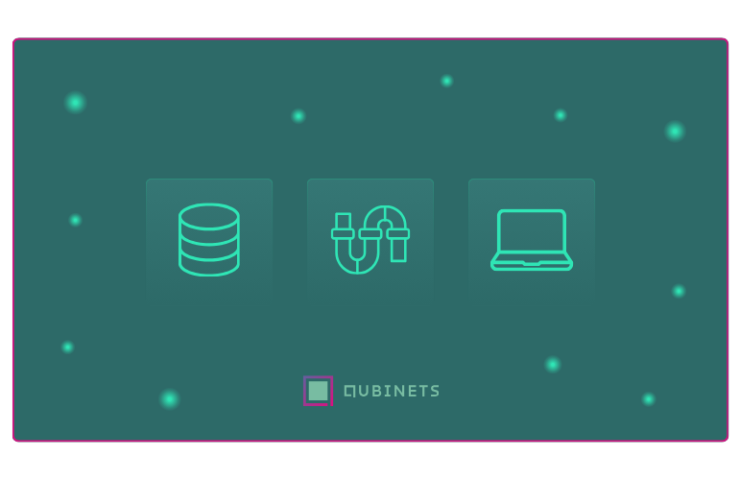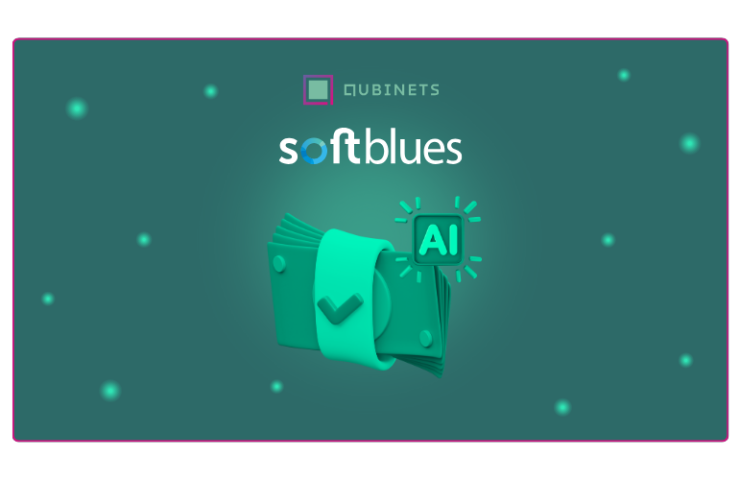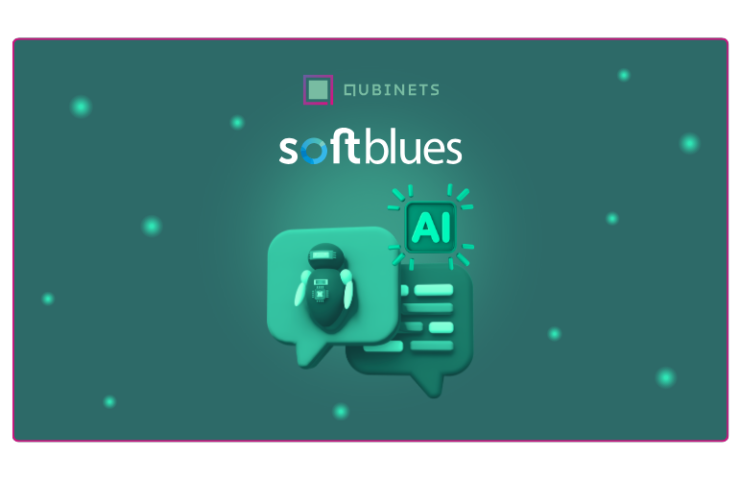The Problem with Deploying AI Agents
Deploying AI agents shouldn’t be this complicated—but right now, it is.
Most companies trying to build AI-powered applications face two major roadblocks:
1️⃣ Cloud Lock-In and High Costs
Many AI tools rely on third-party cloud providers, forcing companies to pay for expensive compute, data transfers, and storage while losing control over their own infrastructure.
2️⃣ DevOps-Heavy Deployment
Setting up AI applications requires complex infrastructure, skilled DevOps engineers, and months of fine-tuning—slowing innovation and increasing costs.
The result? AI adoption is unnecessarily expensive and inefficient. Businesses need a way to deploy AI on their own terms—without vendor lock-in, without huge overhead, and without a DevOps nightmare.
So how do you make AI deployment easier, more cost-effective, and fully in your control—without sacrificing performance?
Why Traditional Solutions Aren’t Working
With the surge in interest around AI agents, Qubinets is uniquely positioned to address the challenges of building, hosting, and distributing powerful and complex AI solutions.
These AI agents combine LLMs with large quantities of customer data and pre-processing logic into a uniquely valuable stack that fulfils the AI promise to integrate into and impact everyday business operations.
AI agents are designed to handle specialized tasks, often evaluated against human performance. Organizations are willing to invest in these agents at costs comparable to human counterparts, especially as innovators adopt this technology to benchmark against legacy approaches—whether traditional software or human-driven workflows.
However, our value extends beyond agentic AI. The future of computing is undeniably cloud-based, but markets are demanding a better way to build and deploy software—independent of cloud vendors, free from the constraints of vendor lock-in.
Recognizing this, Qubinets has prioritized agentic AI use cases due to the distinct opportunities and challenges they present, but keeps a broad plan of bringing this technology to all aspects of cloud software.
How Qubinets Solves This
Qubinets provides an innovative platform to automate the packaging and provisioning of cloud-native containerized applications across public and private clouds.
By enabling seamless replication, distribution, and tracking of cloud applications across multiple deployment locations, Qubinets delivers two primary values:
- Lowering the cost of deployment for cloud-agnostic software from the vendor’s perspective.
- Enhancing visibility and accessibility for buyers, driving demand and adoption.
This is achieved by wrapping microservices—the building blocks of software—into automation scripts, combined with a clean and functional UI.
This approach empowers developers with self-service capabilities to build, deploy, and distribute cloud assets without reliance on costly and time-intensive DevOps processes.
The opportunity for Qubinets lies in enabling lightweight applications and data pipelines that are inherently cloud-native, designed to scale and operate on demand.
Traditional methods, reliant on highly skilled DevOps teams, make such use cases slow and prohibitively expensive to deliver and replicate.
Key Features of Qubinets
Qubinets’ platform is uniquely positioned to address these challenges by enabling rapid deployment, distribution, and management of containerized AI solutions across public and private clouds.
Key features include:
- Cloud-Agnostic Automation – By wrapping microservices into automation scripts with a user-friendly UI, Qubinets allows businesses to deploy and replicate AI agents effortlessly across any cloud environment.
- Shift Left for Developers – Qubinets empowers developers with self-service tools to build, deploy, and distribute AI agents, eliminating reliance on costly and slow DevOps processes.
- Proximity to Data – By enabling deployment closer to customer data, Qubinets ensures that data remains secure while reducing latency and minimizing the need for costly data transfers to third-party clouds.
- Integration with existing Open Source – Making databases, vector stores, visual tools, event engines, timeseries, and log tools available to be combined with LLMs, so the value of AI can be applied on a much more complex level.
Real AI Use Cases That Need Qubinets
From ensuring reliable and cost-effective operation to enabling high mobility, Qubinets is designed to bring AI processing closer to the data itself.
For example, Retrieval-Augmented Generation (RAG) workflows rely on pre-processing large data volumes to retrieve relevant information for inference.
By enabling this processing to occur locally, near the data source, Qubinets minimizes reliance on external cloud services while enhancing performance and cost efficiency.
As advancements in lightweight LLMs enable local operation on the same compute that stores data and logic, Qubinets’ ability to rapidly deploy these stacks on any cloud further solidifies its relevance in this emerging field.
Qubinets excels in supporting demanding agentic AI applications, including:
- Retrieval-Augmented Generation (RAG) – RAG workflows require pre-processing large data volumes near the data source. By enabling lightweight AI deployments on local compute, Qubinets reduces reliance on external cloud resources, ensuring faster and more cost-effective operations.
- On-Premises AI – As lighter LLMs and edge AI solutions become viable, Qubinets will provide a robust foundation for hosting and managing these models directly where the data resides.
Why Qubinets is the Best Alternative?
Qubinets aligns with market demands for flexibility and vendor independence by:
- Facilitating Multi-Cloud Deployments – Avoiding dependence on a single cloud provider ensures businesses retain control over their AI deployments.
- Empowering Innovators – Early adopters can experiment and benchmark agentic AI solutions without incurring prohibitive costs or compromising data sovereignty.
The platform’s ability to integrate open-source modules with proprietary logic offers several advantages:
- Modularity – Open-source modules allow businesses to leverage community-driven innovation while tailoring solutions to their specific needs through proprietary logic.
- Cost Efficiency – By building AI solutions that utilize existing modules, organizations can reduce development costs and time-to-market.
- Scalability – Qubinets enables these modular AI agents to scale dynamically across multiple environments, ensuring they remain cost-effective and performant.
The Future of AI Agents Deployment
As AI capabilities continue to evolve, Qubinets’ ability to rapidly deploy AI stacks across diverse environments positions it as an enabler of the next wave of AI innovation.
By addressing the dual challenges of cost and complexity, the platform will drive adoption of agentic AI solutions that operate securely, efficiently, and close to customer data.
The future of AI isn’t about centralized SaaS models that lock businesses into a single provider. It’s about deployment flexibility, efficiency, and control.
And Qubinets is leading that transformation.
Ready to take full control of your AI deployment? Contact Qubinets and start building AI agents without limitations.






